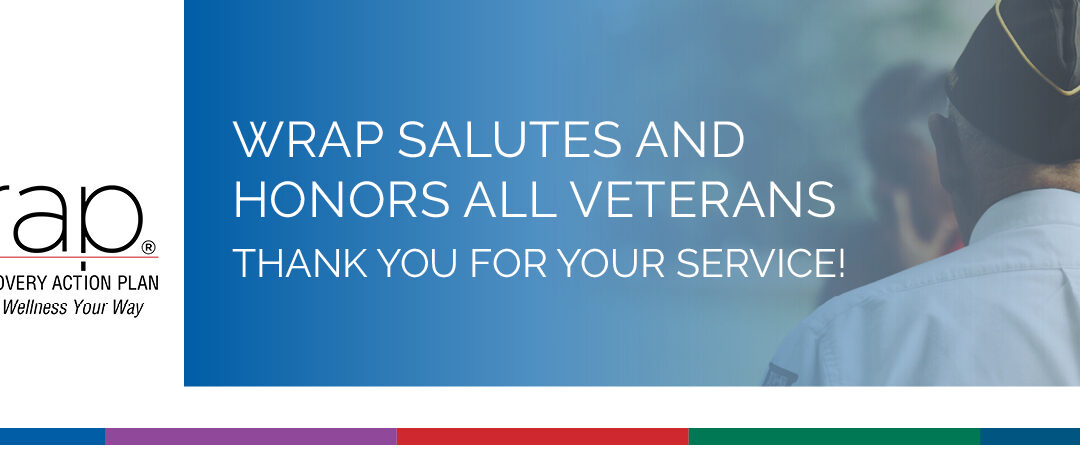November 11 is Veterans Day in the United States. WRAP thanks all Veterans around the world who have served their countries, often at great sacrifice—including lasting emotional and physical issues. Today, we feature the words of Larry Buttel, a U.S. Veteran who helped with the creation of our updated WRAP for Veterans, Active Service Members, and Military in Transition.

By Larry Buttel, MS-IPT, Former Certified Advanced Level WRAP Facilitator
I am a Vietnam-era U.S. Air Force Veteran, a retired peer support specialist with the Boise VA Medical Center, and a former Certified Advanced Level WRAP Facilitator. I have suffered through depression, and WRAP helped me.
Although retired, I still informally advise and mentor other Veterans, using the WRAP principles and the big takeaways from WRAP that have been the most impactful for me and others.
Let me start by saying the WRAP workbooks and training materials have been updated in a very effective way. I and other Veterans, peer supporters, and Certified WRAP Facilitators contributed to the updated edition currently being used, WRAP for Veterans, Active Service Members, and Military in Transition.
It was very well thought out and really hits the mark in so many aspects. Skilled facilitators who are Veterans themselves can frame the content into a motivating vehicle that Veterans can use to thrive.
The five key concepts of WRAP—hope, personal responsibility, education, self-advocacy, and support—are so important to Veterans who are transitioning back to everyday life. For many Veterans, if not all, their military experience gave them purpose, direction, and control over their situation and often their circumstances. After the military, much of this is lost or, to them, feels like it’s been taken away. Veterans are also survivors of circumstances or trauma that few others can understand.
WRAP can begin to restore that essential feeling of control by leveraging adaptive, positive skills, abilities, and experiences that have enabled Veterans to get to where they are today. This frame of reference is critically important to Veterans’ motivation.
To help them find motivation, it’s essential to show Veterans that they’ve already been using the concepts and tools of WRAP. Veterans already understand and fully grasp the idea of an action plan. WRAP frames this concept better than any other strategy available when presented by someone with perceived credibility.
This is why WRAP for Veterans is usually always facilitated by Veteran peers, within a group of peers, in a community of learning where Veterans learn from and support each other in a safe environment.
WRAP is an evidence-based strategy that helps Veterans—and anyone else—get healthy and stay healthy. It has helped thousands of Veterans and others live a better life.
It has certainly helped this Veteran.

Larry D. Buttel, MS-IPT, is a Certified Peer Support Specialist, Advanced Level WRAP Facilitator, and VA Certified Coach & Mentor at the Boise VA Medical Center.






